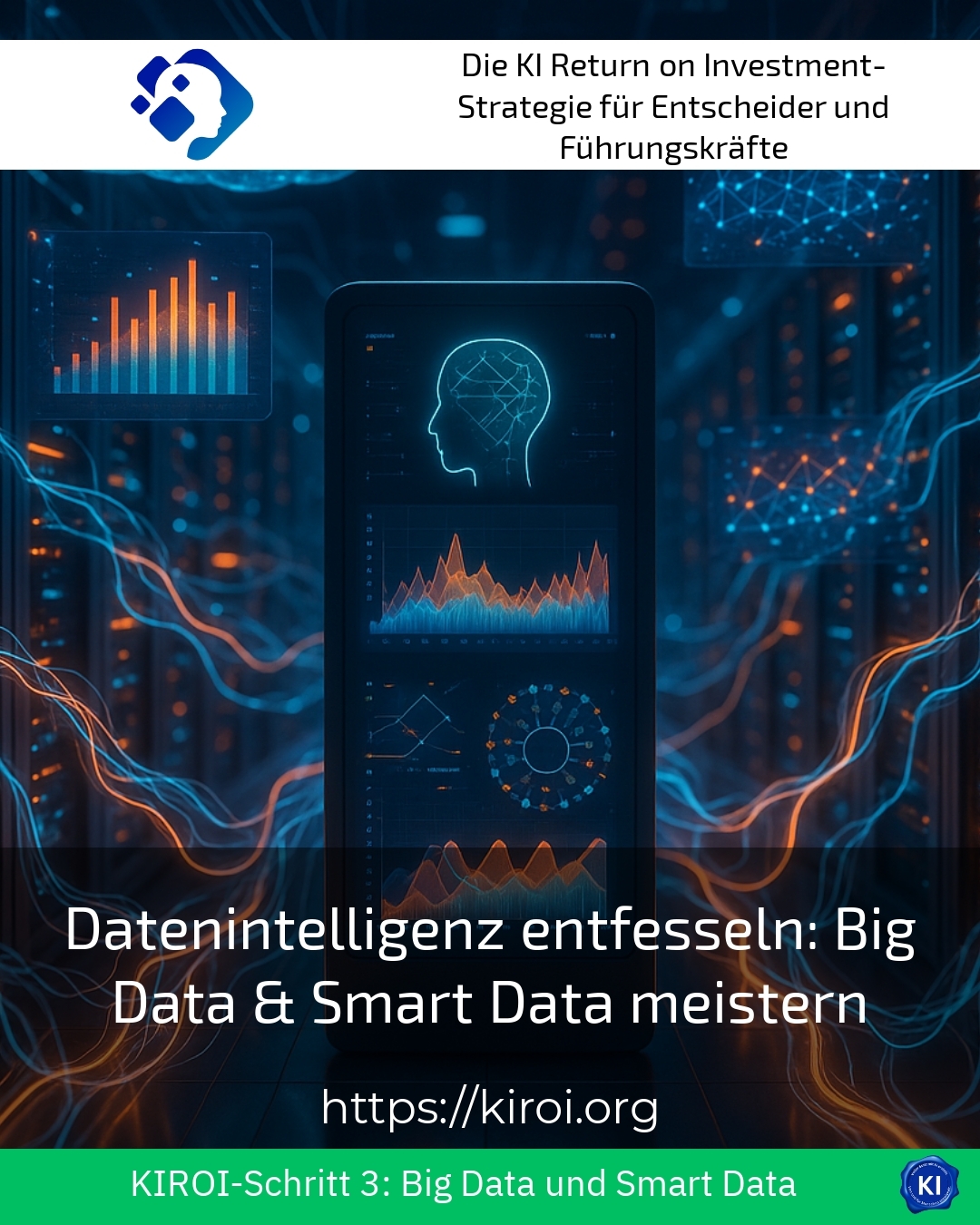Data intelligence is becoming increasingly important in the digital age. Companies are faced with the challenge of extracting real added value from huge amounts of data. Data intelligence describes the ability to generate precise and contextualised smart data from the flood of big data. It is not just about the sheer quantity, but also about the quality and meaningfulness of the information. This intelligently processed data helps companies to make well-founded decisions and develop innovative solutions.
Big data and smart data: the crucial difference
Big data refers to large, heterogeneous and often unstructured volumes of data. This raw information comes from numerous sources such as IoT sensors, transactions or user interactions. Without analysis, however, it offers little direct benefit. Smart data, on the other hand, is high-quality, filtered and contextualised information that is extracted from big data. It is precise, relevant and enables fast and reliable decisions.
Examples from practice
A manufacturer collects data from machines and sensors. This raw data alone does not help. Smart data that predicts maintenance requirements and prevents breakdowns can only be created through intelligent analysis. A retailer analyses customer data to create individual offers. The raw data is confusing, but targeted filtering and AI-supported processes create smart data that enables personalised marketing measures. A telecommunications provider analyses usage data to optimise networks. The raw data is confusing, but targeted filtering and AI-supported processes create smart data that improves performance.
Data intelligence: From a mountain of data to valuable knowledge
Data intelligence is the key to creating real added value from big data. It supports decision-makers in acting more efficiently, securely and with foresight. In many industries, the targeted use of smart data facilitates strategic decisions and operational processes. A consistent data strategy paired with modern technology helps to successfully utilise the potential of modern data worlds.
Practical use cases
A logistics company uses data intelligence to operate dynamic route optimisation. This shortens delivery times and saves costs. A healthcare provider analyses patient data to create personalised treatment plans. A financial services provider uses data intelligence to recognise risks at an early stage and take preventative measures.
Data intelligence in consulting
Many companies report that big data alone only brings the hoped-for benefits to a limited extent, as the data is often unstructured and incorrect. Smart data is carefully cleansed, filtered and processed with the help of artificial intelligence or machine learning into meaningful information that enables decisions to be made in real time. Data intelligence helps decision-makers to act more efficiently, reliably and with foresight.
Best practices from consulting
A car manufacturer collects data from vehicles and customers. Intelligent analyses generate smart data that supports product development and increases customer satisfaction. A retailer analyses customer data to create individual offers. The raw data is confusing, but targeted filtering and AI-supported processes create smart data that enables personalised marketing measures. A telecommunications provider analyses usage data to optimise networks. The raw data is confusing, but targeted filtering and AI-supported processes create smart data that improves performance.
BEST PRACTICE with one customer (name hidden due to NDA contract) A medium-sized manufacturing company wanted to optimise its maintenance processes. By using data intelligence, we were able to generate smart data from the collected machine data. This data made it possible to recognise maintenance requirements at an early stage and prevent breakdowns. Productivity increased significantly and the costs for unplanned maintenance fell considerably.
My analysis
Data intelligence is the key to creating real added value from big data. It helps decision-makers to act more efficiently, securely and with foresight. In many industries, the targeted use of smart data facilitates strategic decisions and operational processes. A consistent data strategy paired with modern technology helps to successfully utilise the potential of modern data worlds. Data intelligence is not just a technical issue, but a strategic challenge that enables companies to utilise their data in a targeted and meaningful way.
Further links from the text above:
Big data vs. smart data: is more always better?
Smart data: definition, application and difference to big data
Big data: the utilisation of large amounts of data
Data intelligence - big data and smart data for decision-makers
Unleashing data intelligence: Big Data & Smart Data for Decision Makers
Big Data & Smart Data specifically for decision-makers
For more information and if you have any questions, please contact Contact us or read more blog posts on the topic Artificial intelligence here.















